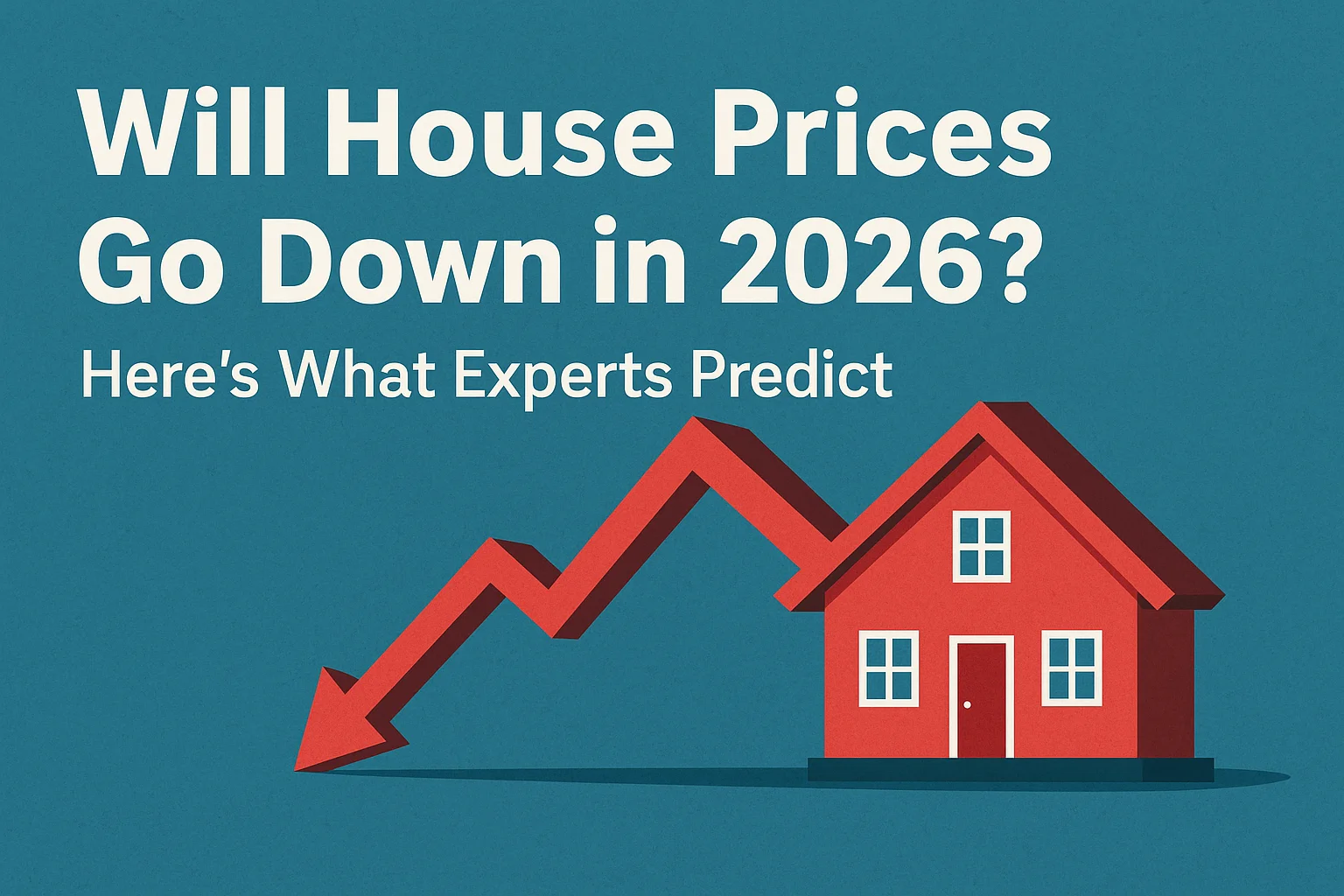The housing market has been unpredictable in recent years. Rising interest rates, limited inventory, and inflation have left many wondering what’s next. A big question on everyone’s mind is — will house prices go down in 2026?
The Current Real Estate Landscape
Over the past few years, home prices have surged in most parts of the United States. The pandemic housing boom, driven by low mortgage rates and high demand, pushed prices to record highs. However, as interest rates climbed, affordability dropped, slowing down buyer activity.
Today, many potential buyers are holding back, waiting to see if 2026 brings a market correction. Industry experts suggest that price trends will depend on a few major factors: interest rates, housing supply, and overall economic health.
Factors That Could Push Prices Down
Several conditions could lead to lower house prices in 2026. The first and most obvious is rising mortgage rates. If rates remain high, affordability will continue to strain buyers. This may force sellers to lower prices to attract interest.
Another key factor is housing inventory. Many markets still have low supply, keeping prices stable. However, if new construction picks up or more homeowners decide to sell, inventory could rise — putting downward pressure on prices.
Economic uncertainty also plays a role. Slower job growth or a mild recession could weaken buyer demand. When fewer people can afford homes, prices typically cool off.
Why Prices Might Stay Stable or Even Rise
While some indicators point to a possible decline, others suggest home prices could remain steady. Homebuilders are cautious, preventing an oversupply that might flood the market. Additionally, many homeowners locked in low mortgage rates and are hesitant to sell.
Millennials and Gen Z buyers entering the market continue to drive demand, especially in affordable regions. Urban migration patterns and strong employment sectors could also help stabilize prices in key cities.
Expert Predictions for 2026
Economists are divided on the question: will house prices go down in 2026?
-
Fannie Mae expects moderate price declines in overvalued regions.
-
Zillow forecasts slight growth due to limited supply.
-
Realtor.com predicts regional differences — with some markets cooling while others maintain steady appreciation.
This suggests that 2026 won’t bring a housing crash but rather a slow adjustment toward balance.
How Interest Rates Shape the Market
Interest rates remain the most influential factor in the real estate outlook. When rates fall, more buyers qualify for mortgages, pushing demand up. Conversely, higher rates limit affordability and reduce market activity.
If inflation continues to ease, the Federal Reserve may lower rates gradually in late 2025 or early 2026. That could stimulate buying activity and prevent significant price drops.
Regional Variations to Watch
Not all housing markets move the same way. Coastal cities with high costs, such as San Francisco and New York, may see more noticeable slowdowns. Meanwhile, midwestern and southern states like Texas and Florida could remain resilient, thanks to lower prices and population growth.
Investors and buyers should track local trends rather than rely solely on national averages. Regional supply, job markets, and population shifts will define the real story in 2026.
Should You Buy Now or Wait for 2026?
This is the question that every potential homeowner faces. If your finances are strong and you find a property you love, waiting may not pay off. Housing markets rarely experience sharp drops, and trying to “time” the bottom is risky.
However, if rates fall and supply increases in 2026, you might gain better negotiating power. For investors, the best approach is to focus on long-term value rather than short-term price swings.
The Economic Outlook
The broader economy will determine much of what happens in the housing sector. If inflation cools, interest rates decline, and wages grow steadily, the market could stabilize without major drops. But if the economy slows sharply, 2026 may bring a mild correction — not a crash.
So, Will House Prices Go Down in 2026?
The answer isn’t a simple yes or no. Analysts agree that while prices may dip slightly, a full-blown decline is unlikely. Instead, expect a balanced market, where buyers and sellers share a more equal footing.
If you’re asking, will house prices go down in 2026, think in terms of moderation rather than collapse. Real estate typically adjusts gradually, influenced by economic shifts and buyer sentiment.
Final Thoughts and Conclusion
2026 could mark the year when the housing market finds its footing again. Expect slower growth, regional variations, and opportunities for patient buyers. Whether prices drop or stay flat, the key is to make informed, financially sound decisions.
Conclusion:
The question “will house prices go down in 2026” doesn’t have one universal answer. However, by understanding the driving forces — from interest rates to inventory — you can position yourself smartly for what’s ahead.
Curious to know will house prices go down in 2026 in your area? Connect with a trusted real estate expert today for tailored insights and guidance before making your next move.





